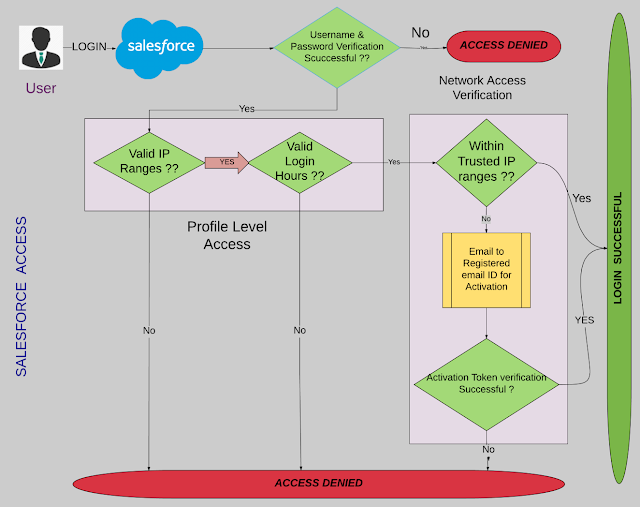Advanced Developer Certification, DEV 501 Quick Points Part-I
DEV 501 Quick Notes
#Referred from another blog.
Quick notes to take
before Advanced Developer certification exam:
Would be useful for all
developers.
1. ReadOnly Annotation prevents you from performing
the following operations within the request:
·
DML operation,
·
system.schedule method,
·
calls to future method,
·
sending emails
2. To increase other Visualforce-specific limits,
such as the size of a collection that can be used by an iteration component
like <apex:pageBlockTable>, you can set the readonly attribute on the
<apex:page> tag to true.
3. Class defined with
@isTest should not be interface or enums.
4.
future annotation:
o
Method with future
annotation cannot be used in getter, setter, constructor methods
o
Future annotated methods
must be defined as static and can return only void return type.
5.
Map Key can hold null value.
6.
Methods with the RemoteAction annotation must be static
and either global or public.
7.
Static methods and variables can only be declared in a top-level class definition,
not in an inner class.
If
a local variable is named the same as the class name, these static methods and
variables are hidden.
System
methods are examples of static methods
8.
Classes can be declared
as enums but does not require class
keyword in declaration. Unlike
Java, the enum type itself has no constructor syntax.
9.
Protected access modifier-
This
means that the method or variable is visible to any inner classes in the
defining Apex class, and to the classes that extend the defining Apex class.\
Only
instance methods and member attributes can use protected method.
10.
The instance
initialization code in a class is executed every time an object is instantiated
from that class. These code blocks run before the constructor.
11.
Apex properties cannot
be defined on interface.
To
use an interface, another class must implement it by providing a body for all
of the methods contained in the interface.
Apex
support both top level and inner interfaces.
To
implement an interface all methods should be defined.
12.
Only class extends from
abstract or virtual classes can use super.
You can only use super in methods that are designated with override keyword.
13.
With Sharing:
Inner
classes do not inherit the sharing setting from their container class. Classes
inherit this setting from a parent class when one class extends or implements
another.
Even
with with sharing class all CURD and field level security are ignored.
14.
Exception classes must
extend either exception or another user-defined exception
15.
Default access level for
inner class is private.
This
keyword is not available for top level classes but available for attributes and
methods.
16.
Constructor does not
have any explicit return type.
17.
System methods:
·
System.Now()
- Returns the time in GMT
·
System.today()-
returns the date in current user's timezone
·
System.assert(),
·
System.AssertEquals()-
Compares two argument and optional message
·
System.AssertnotEquals().
·
System.debug()
18. UserInfo
class:
·
getUserId()
·
getUsername()
·
getUserRole()
·
getFirstname()
·
getLocale()
·
getLanguage()
·
getSessionId()
19.
Limit class:
·
getDMLRows()
returns the number of rows processed.
·
getLimitDMLRows()
returns the total resource available from the current context.
·
getDMLStatements
·
getheapSize
·
getQueries
·
getQueryRows
·
getScriptStatements
20. Data Types in apex:
Primitives,
Sobjects, Collections, enums, objects created from user-defined or system
supplied apex class.


Comments
Post a Comment